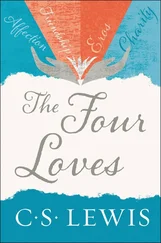But we need not surrender the love of nature—chastened and limited as I have suggested—to the debunkers. Nature cannot satisfy the desires she arouses nor answer theological questions nor sanctify us. Our real journey to God involves constantly turning our backs on her; passing from the dawn–lit fields into some poky little church, or (it might be) going to work in an East End parish. But the love of her has been a valuable and, for some people, an indispensable initiation.
I need not say "has been". For in fact those who allow no more than this to the love of nature seem to be those who retain it. This is what one should expect. This love, when it sets up as a religion, is beginning to be a god—therefore to be a demon. And demons never keep their promises. Nature "dies on" those who try to live for a love of nature. Coleridge ended by being insensible to her; Wordsworth, by lamenting that the glory had passed away. Say your prayers in a garden early, ignoring steadfastly the dew, the birds and the flowers, and you will come away overwhelmed by its freshness and joy; go there in order to be overwhelmed and, after a certain age, nine times out of ten nothing will happen to you.
I turn now to the love of one's country. Here there is no need to labour M. de Rougemont's maxim; we all know now that this love becomes a demon when it becomes a god. Some begin to suspect that it is never anything but a demon. But then they have to reject half the high poetry and half the heroic action our race has achieved. We cannot keep even Christ's lament over Jerusalem. He too exhibits love for His country.
Let us limit our field. There is no need here for an essay on international ethics. When this love becomes demoniac it will of course produce wicked acts. But others, more skilled, may say what acts between nations are wicked. We are only considering the sentiment itself in the hope of being able to distinguish its innocent from its demoniac condition. Neither of these is the efficient cause of national behaviour. For strictly speaking it is rulers, not nations, who behave internationally. Demoniac patriotism in their subjects—I write only for subjects—will make it easier for them to act wickedly; healthy patriotism may make it harder: when they are wicked they may by propaganda encourage a demoniac condition of our sentiments in order to secure our acquiescence in their wickedness. If they are good, they could do the opposite. That is one reason why we private persons should keep a wary eye on the health or disease of our own love for our country. And that is what I am writing about.
How ambivalent patriotism is may be gauged by the fact that no two writers have expressed it more vigorously than Kipling and Chesterton. If it were one element two such men could not both have praised it. In reality it contains many ingredients, of which many different blends are possible.
First, there is love of home, of the place we grew up in or the places, perhaps many, which have been our homes; and of all places fairly near these and fairly like them; love of old acquaintances, of familiar sights, sounds and smells. Note that at its largest this is, for us, a love of England, Wales, Scotland, or Ulster. Only foreigners and politicians talk about "Britain". Kipling's "I do not love my empire's foes" strikes a ludicrously false note. My empire! With this love for the place there goes a love for the way of life; for beer and tea and open fires, trains with compartments in them and an unarmed police force and all the rest of it; for the local dialect and (a shade less) for our native language. As Chesterton says, a man's reasons for not wanting his country to be ruled by foreigners are very like his reasons for not wanting his house to be burned down; because he "could not even begin" to enumerate all the things he would miss.
It would be hard to find any legitimate point of view from which this feeling could be condemned. As the family offers us the first step beyond self–love, so this offers us the first step beyond family selfishness. Of course it is not pure charity; it involves love of our neighbours in the local, not of our Neighbour, in the Dominical, sense. But those who do not love the fellow–villagers or fellow–townsmen whom they have seen are not likely to have got very far towards loving "Man" whom they have not. All natural affections, including this, can become rivals to spiritual love: but they can also be preparatory imitations of it, training (so to speak) of the spiritual muscles which Grace may later put to a higher service; as women nurse dolls in childhood and later nurse children. There may come an occasion for renouncing this love; pluck out your right eye. But you need to have an eye first: a creature which had none—which had only got so far as a "photo–sensitive" spot—would be very ill employed in meditation on that severe text.
Of course patriotism of this kind is not in the least aggressive. It asks only to be let alone. It becomes militant only to protect what it loves. In any mind which has a pennyworth of imagination it produces a good attitude towards foreigners. How can I love my home without coming to realise that other men, no less rightly, love theirs? Once you have realised that the Frenchmen like café complet just as we like bacon and eggs—why, good luck to them and let them have it. The last thing we want is to make everywhere else just like our own home. It would not be home unless it were different.
The second ingredient is a particular attitude to our country's past. I mean to that past as it lives in popular imagination; the great deeds of our ancestors. Remember Marathon. Remember Waterloo. "We must be free or die who speak the tongue that Shakespeare spoke." This past is felt both to impose an obligation and to hold out an assurance; we must not fall below the standard our fathers set us, and because we are their sons there is good hope we shall not.
This feeling has not quite such good credentials as the sheer love of home. The actual history of every country is full of shabby and even shameful doings. The heroic stories, if taken to be typical, give a false impression of it and are often themselves open to serious historical criticism. Hence a patriotism based on our glorious past is fair game for the debunker. As knowledge increases it may snap and be converted into disillusioned cynicism, or may be maintained by a voluntary shutting of the eyes. But who can condemn what clearly makes many people, at many important moments, behave so much better than they could have done without its help?
I think it is possible to be strengthened by the image of the past without being either deceived or puffed up. The image becomes dangerous in the precise degree to which it is mistaken, or substituted, for serious and systematic historical study. The stories are best when they are handed on and accepted as stories. I do not mean by this that they should be handed on as mere fictions (some of them are after all true). But the emphasis should be on the tale as such, on the picture which fires the imagination, the example that strengthens the will. The schoolboy who hears them should dimly feel—though of course he cannot put it into words—that he is hearing saga . Let him be thrilled—preferably "out of school"—by the "Deeds that won the Empire"; but the less we mix this up with his "history lessons" or mistake it for a serious analysis—worse still, a justification—of imperial policy, the better. When I was a child I had a book full of coloured pictures called Our Island Story . That title has always seemed to me to strike exactly the right note. The book did not look at all like a text–book either. What does seem to me poisonous, what breeds a type of patriotism that is pernicious if it lasts but not likely to last long in an educated adult, is the perfectly serious indoctrination of the young in knowably false or biased history—the heroic legend drably disguised as text–book fact. With this creeps in the tacit assumption that other nations have not equally their heroes; perhaps even the belief—surely it is very bad biology—that we can literally "inherit" a tradition. And these almost inevitably lead on to a third thing that is sometimes called patriotism.
Читать дальше











